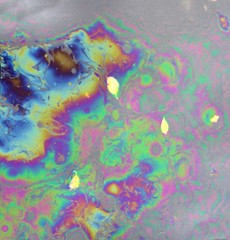The latest news out of Washington and Colorado shows that the need for transparency in natural gas production heightens as each day passes.
 Unlike other toxic chemicals, which are allowed to be injected into the ground for natural gas extraction under an exception known as the Halliburton loophole, the Safe Drinking Water Act specifically forbids the use of diesel fuel in fracking. Thus, the House of Representatives’ January 31, 2011 report may mean at least a dozen companies may be in violation of the Safe Drinking Water Act. The two biggest violators are reported to be BJ Services, which injected more than 11 million gallons of diesel into the ground, and Halliburton, who injected more than 7 million gallons of diesel into the ground
Unlike other toxic chemicals, which are allowed to be injected into the ground for natural gas extraction under an exception known as the Halliburton loophole, the Safe Drinking Water Act specifically forbids the use of diesel fuel in fracking. Thus, the House of Representatives’ January 31, 2011 report may mean at least a dozen companies may be in violation of the Safe Drinking Water Act. The two biggest violators are reported to be BJ Services, which injected more than 11 million gallons of diesel into the ground, and Halliburton, who injected more than 7 million gallons of diesel into the ground
Lack of oversight fingered in congressional report
Unelected bureaucrats who are tasked with regulating the fracking process have gone on the record saying they didn’t think diesel fuel was use din fracking. This rhetoric made it’s way into the congressional report, which took direct aim at the Colorado Oil and Gas Conservation Commission.
The report reads, “an engineer from the Colorado Oil and Gas Conservation Commission (COGCC), for example, said that diesel is ‘rarely used’ and said he knew of only one time diesel fuel was used in hydraulic fracturing in Colorado.”
While that unnamed engineer was clearly incorrect about diesel, David Neslin the Director of the COGCC also seems to have gotten it wrong when it came to his commission’s ability to keep track what is being used in the fracking process. In a 2009 report about Neslin’s resistance to require natural gas companies to disclose the contents of their fracking fluids, Neslin said his agency provided all the protection Coloradoans will ever need.
“I can’t speak for the commission on this, but I can say that from the staff standpoint, we believe that the current Colorado oil and gas rules responsibly address this issue and provide appropriate protection to our groundwater, the environment and the public,” Neslin said in a Colorado Independent story.
While Rep. Jared Polis (D-Col.), whose FRAC Act is consistently shot down in congress, has not commented on the new congressional findings, Colorado senator Michael Bennet wrote in uncharacteristically heightened tones following the report. “The report of diesel fuel in hydraulic fracturing is an alarming cause for concern, particularly when a resource as critical as Colorado’s water is at risk.”
Bennet added he wants more oversight of the fracking process.
Beyond the issue of regulation there is also the concern about enforcement. Clearly this latest study reveals there are serious concerns about how effective the COGCC is when it comes to keeping the poisons of the fracking out of drinking water.






Recent Comments